Authors
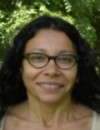
Susana Alves
- Affiliation:
- OPENspace Research Centre, Edinburgh College of Art, Lauriston Place, Edinburgh EH3 9DF, UK
- Research Interests:
- Susana Alves works as a research associate at OPENspace Research Centre at Edinburgh College of Art. She is an environmental psychologist with special interest in urban outdoor environments and health. Her research has focused on older people with an special concern in promoting positive experiences that sustain health and well-being of an older population. During the last four years, she has been involved in two main research projects: I'DGO (Inclusive Design for Getting Outdoor) a 4-year project to determine whether Home Zone streets are a good design solution for older people in the UK and PLUREL (Peri-urban Land Use Relationships), part of the EU 6th Framework Programme, where her work concentrates on investigation the interrelationship between retirement migration and land use. Past research includes studying favorite places for older adults in Brazil and examining the effects of nature-related activities for nursing home residents in the US. A main concern behind her research work is to translate research findings in design recommendations.
- Published Reviews:
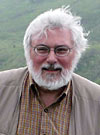
Marc Antrop
- Affiliation:
- Department of Geography, University of Ghent, Krijgslaan 281 S8, 9000 Gent, Belgium
- Personal Homepage:
 homepage
homepage- Research Interests:
- Dr. Marc Antrop (1946) is geographer specialised in landscapes sciences, remote sensing, GIS and planning. He is professor who lectured at the University of Ghent (Belgium) courses in landscape science, landscape management and planning, environmental impact assessment and GIS). He is member of the National Committee of Geography of the Academy of Sciences and vice-president of the Royal Committee for Protection of Monuments and Landscapes in Flanders. In 2003 he received the Distinguished Scholarship Award of the International Association for Landscape Ecology and was proclaimed doctor honoris causa at the University of Tartu (Estonia) in 2007. His landscape research is integrated and really holistic, covering and integrating aspects of landscape genesis (in particular focusing upon the natural and cultural aspects of the European landscapes), landscape perception, landscape evaluation and land assessment, landscape ecology and landscape architecture. Practical application of this knowledge is achieved in planning and environmental impact assessment and monitoring land degradation. His main work areas are Europe, the Mediterranean, Egypt.
- Published Reviews:

Daniel Auclair
- Affiliation:
- INRA, UMR AMAP, 34398, Montpellier, France
- Personal Homepage:
 homepage
homepage- Research Interests:
- Daniel Auclair is a now-retired senior researcher at the French National Institute for Agricultural Research (INRA). Having a background in Forestry engineering, he was a senior researcher (PhD) in modelling and visualization of plants, forests and landscapes. He recently was the scientific director in charge of the team studying the organization and dynamics of forests and landscapes, and of the team developing mathematical models dedicated to plant architecture at the AMAP laboratory.
- Published Reviews:

Aliyu Salisu Barau
- Affiliation:
- Faculty of Built Environment, Universiti Teknologi Malaysia, 81310, Johor, Malaysia
- Research Interests:
- Aliyu Salisu Barau earned B.Sc Geography, and MSc Land Resources Development from Bayero University, Kano, Nigeria. He participated in a number of research projects on urban development, tourism, and landscape sustainability in northern Nigeria. His PhD research at the Universiti Teknologi Malaysia investigates globalisation and landscape fragmentation in Iskandar Malaysia economic city. He is interested in multidisciplinary and coupled human and natural systems research. Aliyu is a member of International Association for Landscape Ecology (IALE), American Geophysical Union, Society for Urban Ecology (SURE) and International Union for Scientific Study of Population (IUSSP).
- Published Reviews:

Simon Bell
- Affiliation:
- Edinburgh College of Art, Art & Design, Lauriston Place, Edinburgh EH3 9DF
- Personal Homepage:
 homepage
homepage- Research Interests:
- Simon Bell is Senior Research fellow at Edinburgh College of Art and by background a forester and landscape architect with special interest in access to the outdoors, forests and remoter landscapes. He has been involved in projects of recreation design in the UK, Canada, Ireland Latvia and Russia. Past research includes 'Local Use of Woodlands in Central Scotland' for the Forestry Commission, 'Crossplan', an EU funded project about participatory landscape planning as a tool for rural develop-ment. Simon is also Associate Professor at the Estonian University of Life Sciences in Tartu, Estonia, department of landscape architecture. Currently Simon is the chair of COST E33 on “Forest recreation and nature tourism.
- Published Reviews:
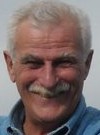
Gerardo Bocco
- Affiliation:
- Centre for Environmental Geography / Centro de Investigaciones en Geografía Ambiental, Universidad Nacional Autónoma de México (CIGA-UNAM, Campus Morelia)
- Personal Homepage:
 homepage
homepage- Research Interests:
- Since 1995, Gerardo Bocco is a senior researcher at CIGA. His background is in physical geography; originally he worked in the digital integration of GIS and Remote Sensing, as related to land use and soil erosion research. Later on he moved to traditional resource management, and field studies on peasant landscape knowledge, particularly in small, rural settlements in Mexico and Argentina. He conducted the creation of CIGA at UNAM, in a small campus in Michoacan, a poor, rural Mexican province, facing serious land degradation problems. During nearly five years he was director general of research in land-use planning, ecosystem conservation and watershed management at the ministry of the environment (Mexican federal government).
- Published Reviews:

Ivy Das Gupta
- Affiliation:
- Economics Department, The Bhawanipur Education Society College, Kolkata, India
- Research Interests:
- Dr. Ivy Das Gupta, PhD, Assistant Professor in Bhawanipur Education Society College worked as Research Associate in Jadavpur University in European Commission funded Project: MICRODIS – Integrated Health, Social and Economic Impacts of Extreme Events: Evidence, Methods and Tools under sixth Framework Programme. She attended many national and international conferences and has also edited a book and has a series of working papers. She also contributed in writing chapter in the book published by Oxford University Press. She specializes in Disaster and Environmental economics, International economics, Economics of Demography and Quantitative Economic Analysis.
- Published Reviews:
-

Tuhin K. Das
- Affiliation:
- Planning & Development Unit, Department of Economics, Jadavpur University, Kolkata 700 032, India
- Personal Homepage:
 homepage
homepage- Research Interests:
- Tuhin K Das is the Chair Professor (Honorary) of the Planning & Development Unit (a Unit of the Planning Commission of India), and the former Professor of Economics, Jadavpur University. He started his career as a researcher in development and application of Computational Methods in Aerodynamics and Artificial Intelligence, and worked as a Research Fellow in UGC Project and Senior Research Fellow in Ministry of Defence Project. In 1978 he joined as Associate Programmer in the Economics Department of Jadavpur University and since then has been engaged in research and teaching on Operations Research and Interdisciplinary Science like Energy and Environmental Economics, Health Economics, Disaster Management, etc. He has supervised many Ph. D and M. Phil students and undertaken a number of funded research projects. He has authored number of books and research articles.
- Published Reviews:
-

Blake E. Feist
- Affiliation:
- Landscape Ecology and Recovery Science, NW Fisheries Science Center, NOAA Fisheries, 2725 Montlake Blvd. East, Seattle, WA, 98112, USA
- Personal Homepage:
 homepage
homepage- Research Interests:
- Blake Feist has been an ecologist at the Northwest Fisheries Science Center (NOAA-NMFS) since 1999. His research focuses on two general areas: the relationship between fish populations and their terrestrial/estuarine habitat; and the interaction between non-indigenous species and estuarine food webs and ecosystems. He applies the principles of landscape ecology for most of his research, but he is also interested in the effects of climate, spatio-temporal scaling, and anthropogenic influences on ecosystems. Blake has a B.S. in Zoology from the University of Wisconsin - Madison, and an M.S. and Ph.D. in Fishery and Aquatic Sciences from the University of Washington.
- Published Reviews:

Michio Fukushima
- Affiliation:
- National Institute for Environmental Studies, Onogawa 16-2, Tsukuba, Ibaraki 305-8506, Japan
- Research Interests:
- Michio Fukushima is a Senior Researcher at the National Institute for Environmental Studies, Japan. He has been a member of the Salmonid Specialist Group, Species Survival Commission, IUCN since 2007. He received his PhD in Fisheries from the University of Alaska Fairbanks in 1996. His current research focuses on freshwater fish migration and on the effects of dams for the fishes in the Mekong River.
- Published Reviews:

Aimee H. Fullerton
- Affiliation:
- Landscape Ecology and Recovery Science, NW Fisheries Science Center, NOAA Fisheries, 2725 Montlake Blvd. East, Seattle, WA, 98112, USA
- Personal Homepage:
 homepage
homepage- Research Interests:
- Aimee is an aquatic ecologist working as part of the Landscape Ecology team at the Northwest Fisheries Science Center (since 2002). There, she has investigated viability of endangered salmonid populations using landscape ecology approaches. Her specific research interests include spatial structure of aquatic populations, especially those living in dendritic stream networks; relationship between spatio-temporal scale and ecological patterns and processes; climate change impacts to aquatic systems; influence of nonindigenous species on native aquatic fauna; and ways that science can contribute to improved decision-making. Aimee received her M.S. in aquatic ecology from the University of Notre Dame in 1998, and will begin doctorate studies at the University of Washington in 2010.
- Published Reviews:

Cédric Gaucherel
- Affiliation:
- French Institute of Pondicherry (UMIFRE 21 CNRS-MAEE), 11, St. Louis Street, Pondicherry, 605001, India, associated to INRA, AMAP laboratory, Montpellier, France
- Personal Homepage:
 homepage
homepage- Research Interests:
- Cédric Gaucherel is a senior researcher (PhD) at the French National Institute for Agricultural Research (INRA). He is presently commissioned by the French Ministry of Foreign Affairs to head the Ecology Department at the French Institute of Pondicherry. His background is in applied Physics, but his keen interest in the functioning of ecosystems and landscapes has led him to focus on issues related to ecology and other various environmental sciences. He is now therefore a theoretical ecologist and a modeler.
- Published Reviews:

Frieder Graef
- Affiliation:
- Leibniz Centre for Agricultural Landscape Research (ZALF), Müncheberg, Germany and Federal Agency for Nature Conservation (BfN), Bonn, Germany
- Research Interests:
- Dr. Frieder Graef (1966) is working both at the Federal Agency of Nature Conservation (BfN) and at the Centre for Agricultural Landscape Research (ZALF) in Müncheberg. He got a PhD in Agriculture (1994) at the University of Hohenheim, Germany. At the BfN he is involved in the risk assessment and regulation of genetically modified organisms (GMO) in Germany. His specific research focus at ZALF is on the environmental risk assessment of genetically modified organisms (GMOs), especially in cultivation systems, and strategies for monitoring their potential effects on biodiversity and ecosystems. He was involved in various projects and activities dealing with the coordination and harmonisation of GMO monitoring data exchange and with concepts to increases the explanatory power and representativeness of locally collected data and upscale them to larger regions.
- Published Reviews:
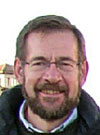
Hubert Gulinck
- Affiliation:
- Department of Earth & Environmental Sciences, K.U. Leuven, Celestijnenlaan 200E, 3001 Leuven, Belgium
- Personal Homepage:
 homepage
homepage- Research Interests:
- The current research activities of Hubert Gulinck are about the transformation of land use in Flanders (Belgium) and their underlying causes, landscape impacts of large scale developments and the role of landscape as communication medium between stakeholders, and sustainability of semi-urban landscapes linked to remnant open spaces and garden complexes. Recently he started a project on landscape and land use factors in human health issues in northern Tanzania, but he has also been active in other countries, a.o. China in research on land use changes and environmental impacts. Hubert Gulinck is furthermore active in diverse networks related to landscape, rural development and spatial planning in Flanders. He teaches in Leuven and in Gent, with courses on Landscape Analysis and Rural Land Use.
- Published Reviews:

Dagmar Haase
- Affiliation:
- Helmholtz Centre for Environmental Research - UFZ, Department of Computational Landscape Ecology, Permoserstr 15, D-04318 Leipzig, Germany
- Personal Homepage:
 homepage
homepage- Research Interests:
- Dagmar Haase is a post-doctoral researcher at the Helmholtz Centre for Environmental Research. She got a PhD in Landscape Ecology and Geography and recently co-ordinates the research work on urban modelling at the Department of Computational Landscape Ecology at the UFZ. In this field, her research speciality is spatially explicit modelling of land use changes, urban growth and shrinkage. Another subject of her current research refers to urban ecosystem services and their modelling including flood impact and risk assessment. Dr. Haase coordinates the Leipzig case study and the modelling activities in the PLUREL EU-IP on peri-urban land use relationships.
- Published Reviews:

Sushil K. Haldar
- Affiliation:
- Department of Economics, Jadavpur University, Kolkata 700032, India
- Personal Homepage:
 homepage
homepage- Research Interests:
- Sushil K. Haldar is Associate Professor at the Department of Economics, Jadavpur University. He completed his Ph. D. in Economics in the year 2004. His area of teaching and research is the economics of the social sector including economics of health, education and human vulnerability. He has carried out many projects funded by University Grants Commission, New Delhi, UNDP, Centre for Advanced Studies, Economics Department and UPE, Jadavpur University. Presently he is associated with a project funded by the European Union. He has supervised a number of Ph. D and M. Phil students. He has authored several research articles in journals and edited volumes.
- Published Reviews:
-
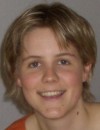
Anna Hermann
- Affiliation:
- Department of Conservation Biology, Vegetation Ecology and Landscape Ecology, Universität Wien, A-1030 Rennweg 14, Vienna, Austria
- Personal Homepage:
 homepage
homepage- Research Interests:
- Anna Hermann is a graduate Ecologist and PhD candidate at the University of Vienna, Department of Nature Conservation, Vegetation Ecology and Landscape Ecology. Her main research interests are landscape- and vegetation ecology with special emphasis on biodiversity research and the assessment of ecosystem services. She is working on national and international EU funded projects focusing on landscape structure analysis and its function as sustainable pest control in organic farming systems, the relationship between landscape structure and biodiversity, the assessment of ecosystem services in transnational ecological networks as well as projects with special regard to nature conservation issues. Since 2008 she is active as lecturer in the field of restoration ecology and nature conservation with special focus on habitat mapping.
- Published Reviews:
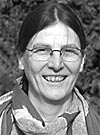
Gertrude Hirsch Hadorn
- Affiliation:
- Institute for Environmental Decisions, Department of Environmental Sciences, Swiss Federal Institute of Technology, Zurich, Switzerland & transdisciplinarity-net, Swiss Academies of Arts and Sciences, Berne, Switzerland
- Personal Homepage:
 homepage
homepage- Research Interests:
- Gertrude Hirsch is a Titular Professor at the Department of Environmental Sciences of ETH Zurich. She got a Ph.D. in educational sciences at the University of Zurich and was a private lecturer in philosophy at the University of Constance. Her research interests include the philosophy of environmental sciences, the methodology of transdisciplinary research and ethical issues of climate change. From 2003-2008 she has been acting as president of td-net for transdisciplinary research (Swiss Academies of Arts and Sciences, www.transdisciplinarity.ch) and in 2000 she has joined the scientific board of the journal GAIA - ecological perspectives for science and society (www.ingentaconnect.com/content/oekom/gaia).
- Published Reviews:

Thomas Houet
- Affiliation:
- Laboratory of Geography of the Environment (GEODE), CNRS, University of Toulouse, 5 allée Antonio Machado, 31058 Toulouse Cedex, France
- Personal Homepage:
 homepage
homepage- Research Interests:
- Thomas Houet works as a research associate at the GEODE Laboratory at the University of Toulouse. He is a geographer with a background (PhD) in GIS and remote sensing, with a special interest in LUCC modelling for exploring the future. His research focuses on methods and approaches that help to understand past changes and project future changes coupled with scenarios at a fine resolution. He is testing these methods on various landscapes (urban, intensive agricultural and mountainous areas). He handles techniques to reconstruct past LUCC, to simulate future changes using LUCC models (pattern-based and process-based models) in order to investigate the respective influence of human-nature relationships.
- Published Reviews:

François Houllier
- Affiliation:
- INRA, UMR AMAP, 34398, Montpellier, France
- Personal Homepage:
 homepage
homepage- Research Interests:
- François Houllier is a senior researcher at the French National Institute for Agricultural Research (INRA), and is currently the president of this institute. Having a background in Forestry engineering and as a researcher (PhD) in biometrics, he is today a senior officer attached to the French ministry of Agriculture, Fisheries and Food. Since January 2005, he is a scientific director for plant and plant products at INRA and has a wide range of interests in ecology, and environmental as well as agricultural sciences.
- Published Reviews:

Robert M. Hughes
- Affiliation:
- Dept. of Fisheries & Wildlife, Oregon State University, 200 SW 35th Street, Corvallis, OR, 97333, USA and current affiliation: Amnis Opes Institute, 2895 SE Glenn Street, Corvallis, OR 97333, USA
- Research Interests:
- Ecological assessments of surface waters and regional patterns in aquatic biota. Developed and tested methods for sampling fish in New England lakes and non-wadeable Oregon rivers. Co-authored the fish assemblage and fish tissue chapters in the EMAP field protocols for wadeable streams and non-wadeable rivers. Refined the Index of Biotic Integrity (IBI) for use in small Oregon streams, Appalachian streams, a large Oregon river, the Seine River of France, the Kshipra and Khan Rivers in India, Pacific Northwest rivers, and western USA streams and rivers. Co-authored USEPA's Rapid Bioassessment Protocols for Fish and Benthic Macroinvertebrates, and provided technical expertise to the USEPA's Steering Committee on Biological Criteria, Ecological Indicators Work Group, and Tiered Aquatic Life Uses Work Group. Served as External Evaluator of the Heinz Center State of the Nation's Ecosystems Report, European Fish Index, National Research Agency of France (ANR), and University of Minnesota Great Lakes Environmental Indicators. Currently applying ecological assessment and monitoring protocols to Brazilian stream, river, and reservoir ecosystems.
- Published Reviews:

Krista Karro
- Affiliation:
- Tallinn University, Estonian Institute of Humanities, Centre for Landscape and Culture, Uus-Sadama 5, 10120 Tallinn, Estonia
- Research Interests:
- Krista Karro works as a junior researcher at Tallinn University (Estonian Institute of Humanities, Centre for Landscape and Culture), where she is also a PhD student. She is an archaeologist with a special focus on historical and archaeological landscapes. Her research deals with the analysis of past landscapes, more specifically, her PhD project involves the analysis of an Iron Age landscape of an area in eastern Estonia. She has previously worked in the Tallinn University's Institute of History as a curator of archaeological collections (2008-2012; national program Humanitarian and Scientific Collections), and been involved in several Estonian research projects (Centre for Excellence in Cultural Theory, Landscape Practice and Heritage). Presently she is taking part in two national research projects - Culturescapes in Transformation: towards and Integrated Theory of Meaning Making and Passages of Waterborne Interaction and Their Impact on Estonian Late Prehistoric and Early Medieval Cultural Landscapes (both 2012 onwards), and one international project - HERCULES (Sustainable Futures for Europe's HERitage in CULtural LandscapES: Tool for Understanding, Managing, and Protecting Landscape Functions and Values). Her main interests involve more specifically the formation and development of waterside landscapes - why, how and when they were used, which archaeological traces are left of the utilisation period, which are the settlement structures and how they are influenced by natural factors like shore line displacement.
- Published Reviews:
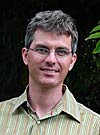
Christoph Kueffer
- Affiliation:
- Department of Botany, University of Hawaii at Manoa, Honolulu, U.S.A. & transdisciplinarity-net, Swiss Academies of Arts and Sciences, Berne, Switzerland & Institute of Integrative Biology, Department of Environmental Sciences, Swiss Federal Institute of Technology, Zurich, Switzerland
- Personal Homepage:
 homepage
homepage- Research Interests:
- Christoph Kueffer is a research scientist at the Department of Botany, University of Hawaii at Manoa, and a lecturer for Environmental Sciences at the Department of Information Technology and Electric Engineering, ETH Zurich. He holds a PhD in plant ecology from ETH Zurich, and is a member of the editorial board of 'Perspectives in Plant Ecology, Evolution and Systematics' (www.elsevier.de/ppees). His current research is focused on plant invasions in oceanic island and mountain ecosystems, among others as the coordinator of the Mountain Invasion Research Network (MIREN, www.miren.ethz.ch). His involvements with transdisciplinary research include his work as a scientific collaborator of the td-net for transdisciplinary research (Swiss Academies of Arts and Sciences, www.transdisciplinarity.ch), a member of the working group 'knowledge exchange' of the Swiss Academic Society for Environmental Research and Ecology (SAGUF), and a founder and steering committee member of seed sustainability - the platform of student based transdisciplinary research in the field of sustainability (www.seed-sustainability.ch). He has worked as a consultant for organisations such as the Food and Agriculture Organization of the UN and the Seychelles Ministry of Environment.
- Published Reviews:

A.N.M. Ludin
- Affiliation:
- Centre for Innovative Planning and Development, Universiti Teknologi Malaysia, 81310, Johor, Malaysia
- Research Interests:
- Dr. A.N.M. Ludin is a Professor at the Faculty of Built Environment, Universiti Teknologi Malaysia (UTM). He received his MSc in Applied Remote Sensing from Cranfield Institute of Technology, UK and PhD in Remote Sensing/GIS from University of Bristol, UK. He specialises in the teaching and application of GIS and remote sensing in urban and regional planning research. Dr Ludin is currently the Dean of the Faculty of Built Environment, UTM. Apart from his administrative duties, he is involved in several multidisciplinary research and consultancy projects particularly in spatial analysis using GIS and remote sensing tools.
- Published Reviews:

Marika Mägi
- Affiliation:
- Tallinn University, Institute of History, Rüütli 6, 10130 Tallinn, Estonia
- Research Interests:
- Marika Mägi works as senior researcher in the Institute of History, Tallinn University. She is archaeologist with special interest in social archaeology, and has analysed Estonian prehistoric society on the basis of different social and anthropological theories. Her other interest is maritime settlement archaeology, especially on the island of Saaremaa but also in North Estonia. Her main present interest is long-term development of maritime landscapes, trade and communication in prehistory and historical periods. Marika Mägi has been involved in several national and international research projects, e.g., Where Land Meets the Sea. Maritime Cultural Landscapes in Prehistoric and Medieval Estonia (project leader, 2007-11), The Archaeology of Estonian Household. Social, economic and spatial aspects in urban and rural settings (senior researcher, 2012-2013), Land, Sea and People: Estonia on its way from the Iron Age to the Medieval period. North-Estonia, West-Estonia and Estonian islands 600-1600 AD (project leader, 2003-2007), Cultural Clash or Compromise. The Europeanisation of the Baltic Sea Area 1100-1400 AD, Visby, Sweden (researcher, 1998-2001). At present she is project leader for Passages of waterborne interaction and their impact on Estonian late prehistoric and early medieval cultural landscapes (2012-2015) and senior researcher in the Project The Making of Livonia: Actors, Institutions and Networks in the Medieval and Early Modern Baltic Sea Region (2014-2019). She has established the curriculum for archaeology at Tallinn University, and acted as professor of archaeology 2007-2012. She is the head of the Department of Archaeology in the Institute of History from 2003.
- Published Reviews:
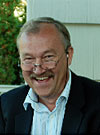
Ülo Mander
- Affiliation:
- Department of Geography, Institute of Ecology and Earth Sciences, University of Tartu, 46 Vanemuise St., Tartu, Estonia, 51014
- Personal Homepage:
 homepage
homepage- Research Interests:
- Dr. Ülo Mander (1954) is Professor of Physical Geography and Landscape Ecology and Head of the Department of Geography, Institute of Ecology and Earth Sciences at the University of Tartu, Estonia. He received a BSc in physical geography (1977) and PhD in biology/ecology (1983) at the University of Tartu, Estonia. Prof. Mander's research and teaching has focused on landscape ecology (nutrient cycling at landscape and catchment levels) and ecological engineering (constructed wetlands and riparian buffer zones: design and performance). He has written over 200 papers and edited 25 books and special issues of international peer reviewed journals in these fields. He has been visiting scientist/visiting professor at various universities and research centers (University of Kiel, Germany, Lund University and University of Linköping, Sweden, Norwegian University of Life Sciences, Leibniz-Centre for Agricultural Landscape and Land Use Research, Germany, National Agricultural Research Center for Hokkaido Region, Sapporo, Japan; The Ohio State University, USA). He is member of editorial board of 7 international peer reviewed journals.
- Published Reviews:
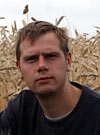
Riho Marja
- Affiliation:
- Department of Geography, Institute of Ecology and Earth Sciences, University of Tartu, 46 Vanemuise St., Tartu, Estonia, 51014
- Personal Homepage:
 homepage
homepage- Research Interests:
- Riho Marja (1982) is a Phd student of landscape ecology and environment protection at the Department of Geography, Institute of Ecology and Earth Sciences, University of Tartu, Estonia. He also works for the Agricultural Research Centre, Estonian Ministry of Agriculture. He got his MSc degree in physical geography from the University of Tartu (2007). His research interest covers relationships of farmland bird communities with landscape pattern, land use structure, and agri-environmental schemes.
- Published Reviews:
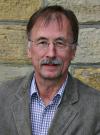
Michael Matthies
- Affiliation:
- University of Osnabrück, Institute of Environmental Systems Research (USF), 49069 Osnabrück, Germany
- Personal Homepage:
 homepage
homepage- Research Interests:
- Prof. Dr. Michael Matthies is the Head of the Institute of Environmental Systems Research. He studied physics and chemistry at the universities of Münster and München. His main research interests is environmental systems science, in particular exposure modelling and risk assessment of pollutants. He is currently involved in several research projects on chemical fate modelling on local, regional and global scale, georeferenced exposure assessment and river basin management.
- Published Reviews:
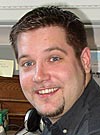
Steven J. Meeus
- Affiliation:
- Department of Earth & Environmental Sciences, K.U. Leuven, Celestijnenlaan 200E, 3001 Leuven, Belgium
- Personal Homepage:
 homepage
homepage- Research Interests:
- Steven Meeus obtained the Master in Bioscience Engineering in the field of Land Management in 2003 at the Katholieke Universiteit Leuven. After graduation, he started researching landscapes under supervision of Prof. H. Gulinck at the department of Earth and Environmental Sciences of the K.U. Leuven, first investigating surface sealing for the Vlaamse Milieumaatschappij (the Flemish environmental agency) and is now finishing a PhD research on Landscape Indicators as measurement tools for sustainability in Semi Urban Areas.
- Published Reviews:
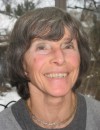
Martha Mertens
- Affiliation:
- Institute for Biodiversity - Network, Regensburg, Germany
- Personal Homepage:
 homepage
homepage- Research Interests:
- Dr. Martha Mertens studied Biology at the University of Munich and at Reed College in Portland, Oregon. She received an additional degree of Environmental Protection Techniques at the Technical University of Munich. Her main fields of interests are environmental impacts of genetically modified organisms and, in particular, potential effects of GM plants on biodiversity. She is member of the science and business experts network of the Institute for Biodiversity.
- Published Reviews:
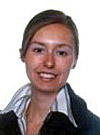
Evy Mettepenningen
- Affiliation:
- Ghent University, Department of Agricultural Economics, Coupue Links 653, 9000 Ghent, Belgium
- Personal Homepage:
 homepage
homepage- Research Interests:
- Evy Mettepenningen obtained a master in Bioscience Engineering at the University of Ghent in 2005, and is working on a PhD at the same University, in the Faculty of Bioscience Engineering. The topic of her PhD is a new institutional analysis of agri-environmental schemes, mainly focussing on the transaction costs involved. Her main fields of interest are the relationship between agriculture and the natural environment, rural development and in particular agri-environmental policy, transaction costs involved in these policies, multifunctional agriculture and rural cooperation.
- Published Reviews:

Susanne Muhar
- Affiliation:
- Institute of Hydrobiology and Aquatic Ecosystem Management, Dept. of Water, Atmosphere and Environment, BOKU - University of Natural Resources and Applied Life Sciences, Max-Emanuel-Strasse 17, 1180 Vienna, Austria
- Personal Homepage:
 homepage
homepage- Research Interests:
- Susanne Muhar is Associate Professor at the Inst. of Hydrobiology and Aquatic Ecosystem Management in Vienna, Austria. Her research work is focused on methods for assessing the physical environment of riverine landscapes, concepts and methods of ecological river management and river restoration and the evaluation of river restoration programmes; current projects include the analyses of effects of the implementation of water related directives (Water Framework Directive, Habitat and Birds-Directive), the relationship between hydro-morphological conditions and land use patterns and the self purification capacity of small rivers and the development of causal models in sustainable river catchment management.
- Published Reviews:

Eva Silveirinha de Oliveira
- Affiliation:
- OPENspace Research Centre, Edinburgh College of Art, Lauriston Place, Edinburgh EH3 9DF, UK
- Research Interests:
- Eva Silveirinha de Oliveira is a PhD student at Edinburgh College of Art. She got her degree in Landscape Architecture at Instituto Superior de Agronomia, Lisbon Technical University, in 2004. Her research interests cover the use of public open spaces by ethnic minorities and immigrant communities. Her current investigation focuses on the use of Lisbon's public open spaces by three immigrant communities. She has also collaborated as a research assistant at OpenSpace and has participated at Cost Action E39 - "Trees, forests and human health and well-being".
- Published Reviews:

Hannes Palang
- Affiliation:
- Tallinn University, Estonian Institute of Humanities, Center for Landscape and Culture, Uus-Sadama 5, 10120 Tallinn
- Personal Homepage:
 homepage
homepage- Research Interests:
- Dr Hannes Palang (1968) is a geographer interested in culture in the landscape. He is professor of human geography and head the Center for Landscape and Culture at the Tallinn University. He is also the President of the Permanent European Conference for the Study of the Rural Landscape. His past research ranges from landscape diversity indexes to local participation and time layers. He has been involved in many applied projects in planning valuable landscapes and assessing their values.
- Published Reviews:

Michaela Poppe
- Affiliation:
- Institute of Hydrobiology and Aquatic Ecosystem Management, Dept. of Water, Atmosphere and Environment, BOKU - University of Natural Resources and Applied Life Sciences, Max-Emanuel-Strasse 17, 1180 Vienna, Austria
- Personal Homepage:
 homepage
homepage- Research Interests:
- Michaela Poppe is PhD student at the Institute of Hydrobiology and Aquatic Ecosystem Management in Vienna, Austria. She got her MSc in Geography at the University of Vienna. Her research interests cover riverine landscape typology and pattern and the analyses of land use and landscape metrics at different spatial scales. Currently, she is involved in an EU funded project on identifying causal models in sustainable river catchment management.
- Published Reviews:

Jörg A. Priess
- Affiliation:
- Helmholtz-Center for Environmental Research - UFZ, Department for Computational Landscape Ecology, Permoserstraße 15, D-04318 Leipzig, Germany
- Personal Homepage:
 homepage
homepage- Research Interests:
- Joerg A. Priess has a scientific background in ecology and forestry. For the last ten years he is studying land-use change dynamics, at the regional and larger scales. He is focussing on socio-environmental impacts of land-use dynamics and links and feedbacks between the antroposphere and the environment. He is the main developer of an integrated land-use modeling framework, which is currently being adapted and applied in different case study regions.
- Published Reviews:
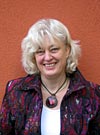
Ulrike Pröbstl
- Affiliation:
- University of Natural Resources and Applied Life Sciences, Institute of Landscape Development, Recreation and Conservation Planning (ILEN), A-1190 Vienna, Austria
- Personal Homepage:
 homepage
homepage- Research Interests:
- Ulrike Pröbstl is Univ. Professor for Landcape development, recreation and tourism at the BOKU University of Natural Resources and Applied Life Sciences, Vienna. Actual research projects are deal-ing with nature based tourism and recreation - with a special focus on forest as well as Natura 2000 -, possible impacts of climate change on nature based tourism and tourism related to protected areas. Further research task are focussed on landscape development in the sensitive alpine area and the implementation of planning frameworks like SEA, EIA, Auditing systems and other. She is member of various professional bodies on a national, european and international level.
- Published Reviews:
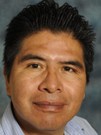
Juan Pulido
- Affiliation:
- Regional Research Centre on Rural Development, Autonomous University Chapingo / Centro Regional Universitario Centro Occidente (CRUCO), Universidad Autónoma Chapingo
- Personal Homepage:
 homepage
homepage- Research Interests:
- Juan Pulido Secundino is a senior researcher at CRUCO and doctoral candidate at CIGA, UNAM (www.ciga.unam.mx). As agronomist and soil scientist he did research on soil fertility, soil conservation and organic nopal (Opuntia spp) plantation. He holds a master of science in natural resource management and is a doctoral candidate in geography. His current research interests are peasant land management, agroecology of rural producers, and traditional environmental knowledge. He has done extensive field work in the indigenous region of central Michoacan, Mexico, particularly using his mother tongue (purepecha). He has been director of CRUCO and also head of its postgraduate program in rural development.
- Published Reviews:
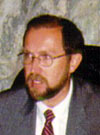
Jüri Roosaare
- Affiliation:
- Department of Geography, Institute of Ecology and Earth Sciences, University of Tartu, 46 Vanemuise St., Tartu, Estonia, 51014
- Personal Homepage:
 homepage
homepage- Research Interests:
- Dr. Jüri Roosaare (1953) is the Associate Professor in geoinformatics at the Department of Geography, Institute of Ecology and Earth Sciences, University of Tartu Estonia. He got a PhD in geography (landscape geophysics) at the Moscow State University (1982). His research interests include applications of GIS in landscape ecology (simulation modelling of water cycle and land use changes in watersheds, analysis of spatial patterns), curriculum development in geoinformatics and philosophical problems of geography. Since 2004 he is member of the Steering Committee of IGU Commission on Geographical Information Systems.
- Published Reviews:

Maarja Saar
- Affiliation:
- Center for Landscape and Culture, Estonian Institute of Humanities, Tallinn University, Uus-Sadama 5, 10120 Tallinn
- Personal Homepage:
 homepage
homepage- Research Interests:
- Maarja Saar (1987) studies anthropology at the Tallinn University, Estonia, and geography at the University of Wisconsin Madison, USA, and worked as a research assistant at the Center for Landscape and Culture at the Tallinn University. Her main research interest lies in urban geography, specifically she is engaged in place meaning and place identity studies. She is currently studying the area of blockhouses in Tallinn and also deals with post-soviet urban space.
- Published Reviews:
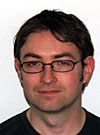
Rüdiger Schaldach
- Affiliation:
- Center for Environmental Systems Research, University of Kassel, Kurt-Wolters-Str. 3, D-34109 Kassel, Germany
- Personal Homepage:
 homepage
homepage- Research Interests:
- Rüdiger Schaldach is senior scientist at the Center for Environmental Systems Research. He studied computer science and geoecology in Karlsruhe and Braunschweig. His main research interests are in the fields of spatial modelling of land-use systems and sustainable use of natural resources. Current research projects include the development of global scale modelling approaches and the application of land-use modelling techniques in context of sustainable water management in the Jordan River region.
- Published Reviews:
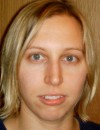
Sabine Schleifer
- Affiliation:
- Department of Conservation Biology, Vegetation Ecology and Landscape Ecology, Universität Wien, A-1030 Rennweg 14, Vienna, Austria
- Research Interests:
- Sabine Schleifer is a MSc candidate at the University of Vienna, Department of Nature Conservation, Vegetation Ecology and Landscape Ecology. Her main research interests are landscape ecology and nature conservation related issues. In her diploma thesis she deals with the relationship between landscape structure and ecosystem services with special regard to viticultural landscapes. She has already gained experiences in national and international projects focusing on the assessment of ecosystem services in transnational ecological networks.
- Published Reviews:
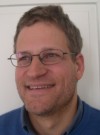
Stefan Schmutz
- Affiliation:
- Institute of Hydrobiology and Aquatic Ecosystem Management, Dept. of Water, Atmosphere and Environment, BOKU - University of Natural Resources and Applied Life Sciences, Max-Emanuel-Strasse 17, 1180 Vienna, Austria
- Personal Homepage:
 homepage
homepage- Research Interests:
- Main interests of Stefan Schmutz are in fish ecology and modelling of complex aquatic ecosystems. He recently has coordinated EU projects (FAME, EFI+) targeting at assessment of ecological status of running waters according to the Water Framework Directive. Further research interests are impacts and mitigation of hydropower and channelisation effects, fish pass technologies, habitat modelling and restoration of running waters in Austria and EU. He teaches courses at the BOKU in aquatic ecology and river management.
- Published Reviews:
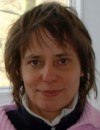
Gesine Schütte
- Affiliation:
- FSP BIOGUM, Hamburg University, Hamburg, Germany
- Personal Homepage:
 homepage
homepage- Research Interests:
- Gesine is scientist at the interdisciplinary research center for Biotechnology, Society and the Environment at the University of Hamburg. She has assessed agronomic and ecological implications of new plant varieties and agricultural measures in the context of the agricultural system for several German federal agencies. In doing so the principal focus was on production, net income and biodiversity impacts. Her presentations of project results contributed to the national and international discussion on green biotechnology. A further subject of her research are effects of land use patterns on biodiversity in agricultural landscapes. Gesine´s general objective is to compare and develop concepts for the sustainable use of biological resources. These concepts may comprise structural, social and technical (high and low tech) solutions. She has a degree in biology, political sciences and educational science and received a PhD in ecology.
- Published Reviews:

Marcus Schulz
- Affiliation:
- University of Osnabrück, Institute of Environmental Systems Research (USF), Barbarastrasse 12, 49076 Osnabrück, Germany
- Personal Homepage:
 homepage
homepage- Research Interests:
- Dr. Marcus Schulz is a senior scientist at the Institute of Environmental Systems Research. He studied Geology and Biology at the University of Göttingen and wrote his PhD thesis on the methane cycle in Lake Constance. He has worked many years on sedimentological, biogeochemical, microbiological, and geobotanical topics mainly in aquatic systems and is currently investigating the run-off, transport and sedimentation of pollutants during extreme flood events in the Mulde catchment, a main tributary of the Elbe River in Germany.
- Published Reviews:
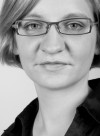
Nina Schwarz
- Affiliation:
- Helmholtz Centre for Environmental Research - UFZ, Department of Computational Landscape Ecology, Permoserstr 15, D-04318 Leipzig, Germany
- Personal Homepage:
 homepage
homepage- Research Interests:
- Nina Schwarz ist a post-doctoral researcher at the Helmholtz Centre for Environmental Research in the Department of Computational Landscape Ecology. She is interested in urban land use, climate regulation as urban ecosystem service and agent-based modelling. Currently, she is involved in a project on peri-urban land use relationships in Europe. Her background is environmental sciences, and she got a PhD in social and economic sciences at the University of Kassel, Germany.
- Published Reviews:

Kadri Semm
- Affiliation:
- Center for Landscape and Culture, Estonian Institute of Humanities, Tallinn University, Estonia
- Research Interests:
- Kadri Semm is a PhD student in cultural studies at Tallinn University, Estonia. She also works as a research assistant at the Center for Landscape and Culture at Tallinn University. Her research interest lies in the use of the concept of the term 'milieu' in the urban planning practice. Her current investigation is dealing with everyday landscapes, neighborhood communities and with the creation of urban atmospheres in the street photography.
- Published Reviews:

Sayanti Sen
- Affiliation:
- Department of Geography, Bangabasi College, Calcutta University, Kolkata 700 009, India
- Research Interests:
- Dr. Sayanti Sen currently teaches at the Department of Geography, Bangabasi College, Kolkata. She completed her doctoral thesis from Jadavpur University in 2010. Her areas of research interest are broadly disaster management, climate change and socio-economic aspects like quality of life. She has been part of research projects in Damodar River Basin and Coastal Area of Digha. She has authored a number of international and national research articles and publications.
- Published Reviews:
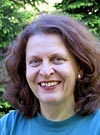
Tuija Sievänen
- Affiliation:
- The Finnish Forest Research Institute, Vantaa Research Unit, Helsinki Unit, Unioninkatu 40 A, 00170 Helsinki, Finland
- Personal Homepage:
 homepage
homepage- Research Interests:
- Tuija Sievänen works in the Finnish Forest Research Institute (METLA) as the project leader for outdoor recreation studies in Helsinki, Finland. She is the coordinator of the National Outdoor Recreation Demand and Supply Inventory (LVVI)-study. She is involved in developing visitor survey and counting methods with the Finnish Forest and Parks Service.
- Published Reviews:

Murray Simpson
- Affiliation:
- University of Oxford, School of Geography & Environment, OX1 3TB, UK
- Research Interests:
- Murray is a Research Scientist at Oxford University Centre for the Environment, a consultant in tourism and sustainable development and has worked at senior executive and board level in industry. His current work includes the interrelations between tourism and the environment, sustainable livelihoods analysis and liaison with communities and public and private stakeholders; bridging the gaps between research, policy and practice. He is a member of the executive committee of the peak international organization ‘Experts in Climate Change and Tourism’ (eCLAT), a Fellow of the Royal Geographical Society, a member of the Int’l Human Dimensions Program on Global Environmental Change (IHDP-GEC) UK committee and a member of the United Nations World Tourism Organization (UNWTO) Panel of Tourism Experts. He has authored and contributed to numerous UNWTO and peer-reviewed publications, and worked on projects in Europe, Australasia, South Africa, USA, Asia, South America and the Caribbean.
- Published Reviews:

E. Ashley Steel
- Affiliation:
- Landscape Ecology and Recovery Science, NW Fisheries Science Center, NOAA Fisheries, 2725 Montlake Blvd. East, Seattle, WA, 98112, USA and current affiliation: PNW Research Station, USDA Forest Service, 3625 93rd Avenue SW, Olympia, WA 98512, USA
- Research Interests:
- Ashley Steel is the Station Statistician for the USDA Forest Service PNW Research Station. She is a quantitative research scientist and consulting statistician. Her research interests include the development of methods for linking landscape-scale patterns with in-stream responses, quantification of complex ecological time series such as riverine thermal regimes, and model sensitivity analysis. Ashley hopes to leverage statistical tools to improve ecological understanding and to demonstrate how the quantification of uncertainty can be used to improve the management of natural resources. Before joining the PNW Research Station in October 2009, Ashley was the Team Lead for the Landscape Ecology and Recovery Science Team at NOAA's Northwest Fisheries Science Center. She has a PhD in Quantitative Ecology and Resource Management (QERM) and MS degrees in Ecology and in Statistics from the University of Washington.
- Published Reviews:
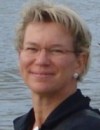
Hanka Teichmann
- Affiliation:
- Federal Agency for Nature Conservation (BfN), Bonn, Germany
- Research Interests:
- Hanka Teichmann is a food chemist with special interest in environmental and health issues of food and food production. She works for Federal Agency for Nature Conservation and is involved in the risk assessment and regulation of genetically modified organisms (GMO) in Germany. She and her colleagues are responsible for the evaluation of potential risks for nature and environment. In a current research project she deals with the improvement of risk assessment for non-target organisms and biodiversity.
- Published Reviews:

Clemens Trautwein
- Affiliation:
- Institute of Hydrobiology and Aquatic Ecosystem Management, Dept. of Water, Atmosphere and Environment, BOKU - University of Natural Resources and Applied Life Sciences, Max-Emanuel-Strasse 17, 1180 Vienna, Austria
- Personal Homepage:
 homepage
homepage- Research Interests:
- Clemens Trautwein is PhD student at the Institute of Hydrobiology and involved in a modelling group with focus on stream ecology. He got his degree in landscape management at the University of Natural Resources and Applied Life Sciences in 2007. Main field of work covers land use analysis in European catchments and various spatial extents of investigation, data acquisition of human impacts on rivers and ecosystem analysis. Current research focus lies on identifying and modelling land use-pressure-fish cause and effect cascades in European streams.
- Published Reviews:
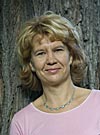
Liisa Tyrväinen
- Affiliation:
- The Finnish Forest Research Institute, Rovaniemi Research Unit, PL 16, FI-96301 Rovaniemi, Finland
- Personal Homepage:
 homepage
homepage- Research Interests:
- Liisa Tyrväinen (Dr. Sc.) is a professor of nature tourism at METLA (Finnish Forest Research Institute), Finland. She has published around 30 papers in international peer-reviewed journals and books and more than 100 titles in total. Her research work has focused on social and economic valuation of amenity benefits of forests as well as analyzing social values and meanings of forests to the general public. Her research experience includes developing methods for enhancing tourism and recreational use of forests as a tool in rural development.
- Published Reviews:

Evelin Uuemaa
- Affiliation:
- Department of Geography, Institute of Ecology and Earth Sciences, University of Tartu, 46 Vanemuise St., Tartu, Estonia, 51014
- Personal Homepage:
 homepage
homepage- Research Interests:
- Dr. Evelyn Uuemaa (1980) is a Researh Scientist at the Department of Geography, Institute of Ecology and Earth Sciences, University of Tartu, Estonia. She studied geography at the University of Tartu (BSc 2004, MSc 2005) and defended her PhD thesis in landscape ecology and environmental protection in 2007. Her main fields of interest are landscape pattern and the relationships between landscape pattern and water quality, landscape metrics, urban landscape pattern and its change in time. She has published 7 international peer-reviewed articles.
- Published Reviews:
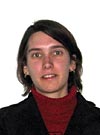
Valerie Vandermeulen
- Affiliation:
- Ghent University, Department of Agricultural Economics, Coupue Links 653, 9000 Ghent, Belgium
- Research Interests:
- Valerie Vandermeulen has obtained a master of science in economics at the University of Ghent and is now working on her PhD at the same University, Faculty of Bioscience Engineering on the topic of development strategies for peri-urban farmers in Belgium. Her main fields of interest contain multifunctional agriculture and related survival strategies, planning discourses for farming within specific environmental conditions, future land requirements by agriculture in Flanders and the relationship between regional identity and multifunctional agriculture.
- Published Reviews:
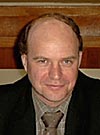
Guido Van Huylenbroeck
- Affiliation:
- Ghent University, Department of Agricultural Economics, Coupue Links 653, 9000 Ghent, Belgium
- Personal Homepage:
 homepage
homepage- Research Interests:
- Prof. dr. ir. Guido Van Huylenbroeck is professor in Agricultural and rural environmental economics at the University of Ghent since 1995. His experience is particularly developed in agricultural policy, economic valuation of natural resources, rural development and agri-environmental policies, transaction cost and property rights issues in environmental regulations, economic analysis of collective innovation projects in agriculture, optimal strategies in land consolidation projects and analysis of structural developments in different sectors.
- Published Reviews:
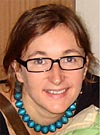
Ann Verspecht
- Affiliation:
- Ghent University, Department of Agricultural Economics, Coupue Links 653, 9000 Ghent, Belgium
- Research Interests:
- Ann Verspecht has obtained a master of science in Bio-Engineering at the University of Leuven in 1998. She works in the domain of Agricultural Economics since 2001. Her main fields of interest are policy related research in the field of multifunctional farming and agri-environmental schemes, possibilities for agriculture in peri-urban zones and she has been closely involved in the evaluation of different Flemish Rural Development plans.
- Published Reviews:

Ulrich Walz
- Affiliation:
- Leibniz Institute of Ecological Urban and Regional Development (IOER), Weberplatz 1, D-01217 Dresden, Germany
- Research Interests:
- Dr. Ulrich Walz studied geography and landscape ecology at the Universities of Stuttgart and Hohenheim. In 2000 he graduated to the theme of the characterisation and assessment of the land use structure with methods of geoinformatics and remote sensing at the University of Dresden. He is now a senior researcher and leader of the expert group "Landscape Ecology and landscape planning" at the IÖR. Research activities are focused on the analysis and assessment of impacts and effects of the land use change on the environment. He has extensive experience in methods and tools of remote sensing and GIS for landscape assessment. Special research interest concerns the relation of landscape structure and ecological functions at the landscape level, in particular the effects of changes of spatial patterns on biodiversity are investigated. Actual key areas of his work are indicators for the landscape structure and biodiversity, historical landscape analysis and information systems.
- Published Reviews:
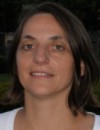
Birgit Winkel
- Affiliation:
- Federal Agency for Nature Conservation (BfN), Bonn, Germany
- Research Interests:
- Birgit Winkel is biologist specialised in microbiology, biochemistry and ecology. Since 2002 she is involved in the risk assessment of the introduction of genetically modified plants into the environment as a regulator in the European approval process. She is especially engaged in the assessment of potential adverse effects on nature and the environment. At the Technical University of Berlin she developed and evaluated ecotoxicological test methods for the assessment of soils.
- Published Reviews:
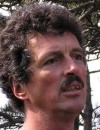
Thomas Wrbka
- Affiliation:
- Department of Conservation Biology, Vegetation Ecology and Landscape Ecology, Universität Wien, A-1030 Rennweg 14, Vienna, Austria
- Research Interests:
- Dr. Thomas Wrbka is senior research fellow and senior lecturer at the University of Vienna, Department of Nature Conservation, Vegetation Ecology and Landscape Ecology. His main research topics are landscape-, vegetation- and restoration ecology with special focus on cultural landscape classification, the use of landscape structure as sustainability indicator and to explain biodiversity pattern, the assessment of landscape functionality and the application of remote sensing in landscape ecology. Since 1983 he has participated in numerous national and international (funded by Central Europe as well as EU framework programmes) research projects in the domain of landscape ecology focusing on biological indicators, landscape functionality assessment, European regionalisation and landscape characterisation. He has also been involved in several comprehensive studies for managing river systems, national parks and other protective areas to provide a standard in conservation practice. He is member of scientific advisory boards of several conservation related NGOs and authorities.
- Published Reviews:

John A. Young
- Affiliation:
- US Geological Survey, Leetown Science Center, Aquatic Ecology Branch, 11649 Leetown Road, Kearneysville, WV 25430, USA
- Research Interests:
- John Young is a Research Biologist (Biogeographer) focusing on applying GIS, remote sensing, and spatial modeling tools to enhance understanding and management of trust species and their habitats. Since 1994, he has led efforts at the US Geological Survey's Leetown Science Center to incorporate spatial analysis into research examining landscape influences on aquatic and terrestrial biota. Past research has focused on watershed analysis, land use impacts on fish and amphibian communities, impacts of eastern hemlock decline on stream fish communities, and development of an invasive species tracking system for the State of Delaware (USA). Currently, he is leading research examining the use of advanced remote sensing technologies such as LiDAR and hyperspectral imaging for examination of upland and aquatic habitat patterning, as well as leading research creating regional spatial models to predict the potential range and population characteristics of American ginseng, a plant species at risk to poaching. He received his B.A. and M.S. degrees in Geography from Virginia Tech in 1987 and 1992 respectively.
- Published Reviews:

Huiyuan Zhang
- Affiliation:
- Chinese Academy for Environmental Planning, Dayangfang, Beiyuan Road, Chaoyang District, Beijing 100012, PR China
- Research Interests:
- Dr. Zhang is the director of the Department of Ecological Environment of CAEP. His fields of expertise include regional ecological protection, ecological evaluation and biodiversity science. As a team leader, Zhang Huiyuan is taking part in National Basic Research Program, National Natural Science Foundation and the CCICED ecological compensation mechanism and policies, and PES program in Australia-China Environmental Development Partnership (ACEDP) Project. Over the past years, during the 11th and 12th Five-year Plan Period, Dr. Zhang has headed the development of Plan for Protection of Ecological Environment for the Three Routes of the South-North Water Transfer Project, Plan for Key National Ecological Function Reserves, Special Plan for Ecological Protection. Dr. Zhang has published 3 monographs and more than 50 academic papers.
- Published Reviews:

Lin Zhen
- Affiliation:
- Institute of Geographic Sciences and Natural Resources Research, Chinese Academy of Sciences, 11A Datun Road, Chaoyang District, Beijing 100101, PR China
- Research Interests:
- Dr. Lin Zhen is the deputy director of Department of Resource Ecology and Bioenergy Research of IGSNRR. Her fields of study include ecosystem change and payment for ecosystem services, impact assessment of land use and multifunctionality, participatory natural resources management. In recent years, Dr. Lin Zhen has focused very much on application and adoption of research results to decision making process in China. She is coordinating national and international research projects, and has published about 100 articles in international and domestic peer reviewed journals, and edited several books. Dr Lin Zhen is the Chinese coordinator of Chinese-German Centre for Impact Assessment (http://www.cgcia.org), jointly established between IGSNRR in China and ZALF in Germany.
- Published Reviews:

Affonso Zuin
- Affiliation:
- OPENspace Research Centre, Edinburgh College of Art, Lauriston Place, Edinburgh EH3 9DF, UK and DFT, Federal University of Viçosa, 36570-000, Viçosa, MG, Brazil
- Research Interests:
- Affonso Zuin is research associate at the OPENspace Research Centre at Edinburgh College of Art and senior lecturer in landscape design and ornamental horticulture at the Federal University of Viçosa, Brazil. With his background in agronomy/horticulture and landscape architecture, his special interest is in research tools for people-environment studies, access to the outdoors, and organic production techniques for tropical flower crops. He has been involved in design projects for public, institutional and private spaces in Brazil and India. Recent research includes the EU 6th Framework Programme Integrated Project PLUREL: peri-urban land use relationships; IDGO TOO -Inclusive Design for Getting Outdoors, Phase 2, funded by the EPSRC; 'Tropical flower production in agroforestry systems', funded by FAPEMIG; and previously, locally funded projects on organic cultivation of Heliconiaceae, the assessment of gardening techniques and practices in Viçosa, Brazil.
- Published Reviews:
Articles
LRLR is no longer affiliated with the Living Reviews journals owned and published by Springer International Publishing AG.
All volumes from the period 2007-2014 are archived by Landscape Online - supported by IALE Region Germany.
All volumes from the period 2007-2014 are archived by Landscape Online - supported by IALE Region Germany.
ISSN 1863-7329
